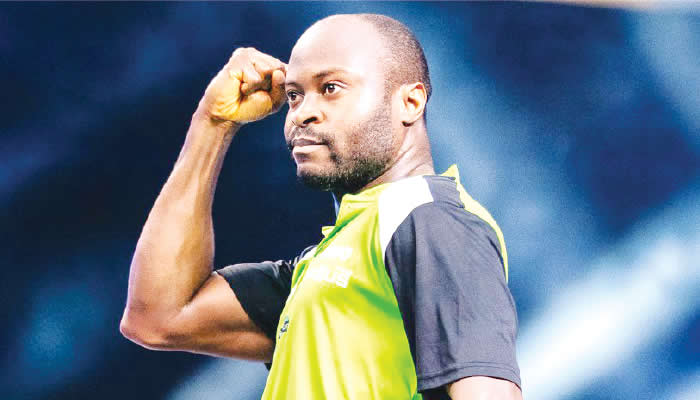Quadri Aruna, Nigeria’s top table tennis player, finds himself in a familiar yet challenging position at the 2025 ITTF World Cup in Macao. His quest to break a four-match losing streak against his Swedish nemesis, Anton Kallberg, is paramount as he battles to secure a spot in the knockout stage, a feat he last achieved in 2014. Aruna’s opening match provided a glimmer of hope as he overcame Abdel-Kader Salifou of Benin Republic 3-1, despite grappling with a hamstring injury. This victory sets the stage for a crucial showdown with Kallberg, who sits atop Group 16 after dispatching Salifou 4-0. The weight of history, however, hangs heavily over Aruna as he confronts Kallberg’s recent dominance.
The history between Aruna and Kallberg paints a picture of the Swede’s ascendancy. Their last four encounters have all ended in Kallberg’s favor, including two straight-set victories in Macao itself. Their most recent clash at the China Smash in October 2024 saw Kallberg prevail 3-1, demonstrating his control over their head-to-head record. A month earlier, also in Macao, Aruna pushed Kallberg to a five-set thriller but ultimately fell short, losing 3-2 despite a spirited comeback in the middle sets. Even earlier matches emphasize Kallberg’s authority, with straight-set wins at the 2022 WTT Champions Macao and a dramatic seven-set victory at the 2021 WTT Contender Tunis, highlighting the Swede’s resilience and ability to close out tight matches.
Despite the daunting task ahead, Aruna remains resolute and optimistic. He acknowledges the challenge posed by Kallberg’s recent victories but expresses his determination to reverse the trend and secure a much-needed win. The Nigerian paddler recognizes the importance of recovery and preparation, emphasizing his intention to rest and strategize before their crucial encounter. He carries the weight of expectation, not only for himself but also for his nation, as he seeks to break his losing streak against Kallberg and advance to the next stage of the competition. Aruna’s mental fortitude will be tested as he aims to turn the tables on his rival.
Kallberg, aware of Aruna’s desire for revenge and his own dominant record against the Nigerian, approaches the match with a cautious yet confident demeanor. He acknowledges their frequent encounters in recent years, recognizing the familiarity they have developed with each other’s playing styles. Kallberg emphasizes his intention to thoroughly review their past matches, seeking to identify patterns and weaknesses that he can exploit to maintain his winning streak. His meticulous preparation underscores his respect for Aruna’s abilities while simultaneously highlighting his determination to stay ahead in their rivalry. Kallberg’s tactical approach and analytical mindset will be key factors in determining the outcome of this pivotal match.
Beyond the Aruna-Kallberg clash, the World Cup also features other African contenders vying for knockout stage qualification. Egypt’s Hana Goda, Dina Meshref, and Omar Assar carry the hopes of their nation, each facing formidable opponents in their respective group matches. Goda is set to challenge Austria’s Sofia Polcanova, while Meshref prepares to face China’s Man Kuai. Omar Assar, after a commanding 4-0 victory against Cameroon’s Ylane Batix, faces a must-win encounter with South Korea’s An Jaehyun. Assar acknowledges the high level of competition, recognizing that there are no easy matches at this prestigious tournament. His focus remains on preparing diligently and fighting for every point. The Egyptian trio’s progress adds another layer of intrigue to the World Cup, showcasing the growing strength and competitiveness of African table tennis.
The tournament, however, witnessed the early exits of several African participants. Egypt’s Mariam Alhodaby and Mohamed El-Beiali, along with Benin’s Salifou and Cameroon’s Batix, suffered their second group stage defeats, ending their World Cup campaigns. Their early eliminations underscore the challenging nature of the competition, where only the most consistent and resilient players progress. While their journeys in this particular tournament have ended, their participation contributes to the overall growth and development of table tennis in their respective countries and across the African continent, paving the way for future successes. The remaining African players will undoubtedly carry the torch, inspired to make their mark on the world stage and demonstrate the rising prominence of African table tennis.














